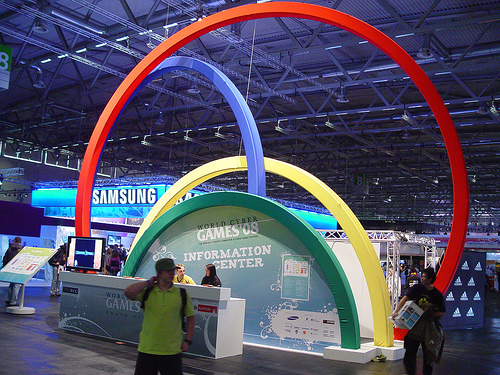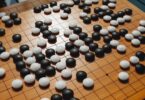With a massive increase in Olympic-related technology, a hybrid version of the games is on the horizon, an expert from Bond University has said.
Professor Jeff Brand said an increase in Olympic-related technology including smart phones, social media and more coverage could result in the games becoming more like the “Cyber Olympics”, the equivalent of the Olympics in the gaming world.
The World Cyber Olympics involves players competing against each other in video games such as soccer’s FIFA, in order to win gold, silver and bronze medals.
“I do think some of the stories coming out of London about difficulties around ticketing, the difficulties around venues, transport and so on, suggest to me we will see a virtualisation of the Olympics over time,” Professor Brand said.
“Digital education, young people being more and more oriented to screens and networks, and of course older professionals becoming more savvy… With all this I think it will become increasingly possible to hybridise.”
The facts
• The Australian Bureau of Statistics found in 2000, only 33 per cent of Australian households had Internet connections at home. This has increased to approximately 80 per cent in 2012.
• 50 per cent of Australians owned or used a mobile phone in 2000, compared to nearly 90% today, with a third of us having two.
• 40 per cent of phones today are smart phones, with access to the Internet.
• Cameras in 2000 were considered sophisticated if pictures were three-megapixels each. Now, a 12-megapixel camera is standard.
• Bond University research found a device for playing video games on was in half of all households in 2000. In 2012, more than 90 per cent of households have gaming consoles, including phones, computers and tablets.
The downside
Dr Peter Horton of James Cook University however, believes the impact of technology on the Olympics will be minimal.
“I think it (technology) will run on the same level. I don’t think it will be more in sport than any other areas,” he said.
What concerns him more is the growth in social media affecting an athlete’s mindspace.
“How many footballers out for a few nights for a few beers are being king-hit, being approached because of some of this social media exposure,” Dr Horton said.
“And one of our young Olympians had to face a tirade about his poor performance, and some other offensive comments.”
Dr Horton was referring to British Olympic diver Tom Daley, who received insulting Twitter messages saying his recently deceased father would be ashamed of his performance.
“The point I am making know is the scope and invasion of it in terms of elite sport,” Dr Horton said.
“I seriously think it is dysfunctional.”







